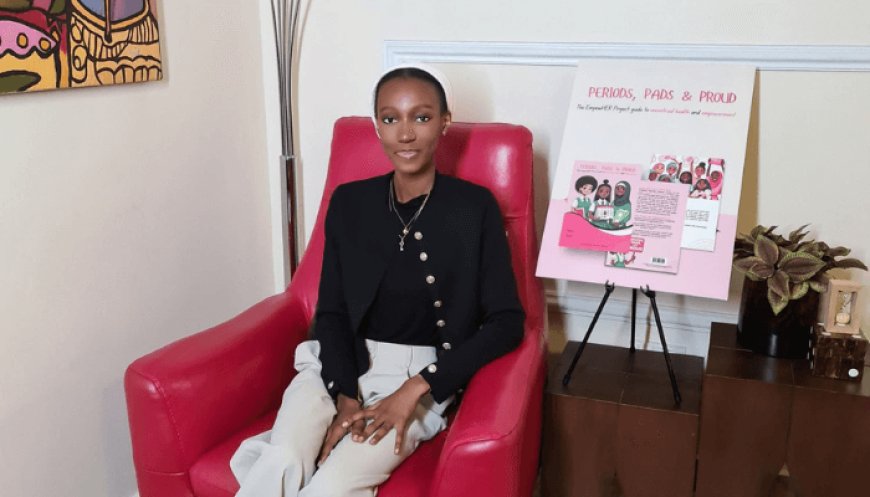Group advocates menstrual health inclusion in school curiculum

A youth advocacy group, ‘The EmpowerHer Project’, has called on the Federal, State and Local Governments to integrate menstrual health education into school curriculum across the country.
The founder, Elizabeth Odukoya, made the call at the unveiling of a book titled ‘Periods, Pads and Proud’ in Port Harcourt, Rivers State capital, on Saturday.
Odukoya said the call was imperative as girls miss school, feel ashamed for being on their period.
She said, “The EmpowerHer Project is building a movement for change. We are working with schools and local authorities to integrate menstrual health into school curricula and advocating for a future where no girl has to miss school, feel ashamed or lack resources she needs simply because of her period.
“In just over a year, we’ve reached more than 3000 girls across 11 schools and communities in Nigeria, delivering interactive health talks, distributing over 3000 free menstrual products and promoting sustainable, reusable sanitary pads as a long-term, eco-friendly solution.
“Our work goes beyond product distribution. We break the silence and stigma around menstruation through open and practical education. We empower girls with knowledge and confidence to manage their periods safely and with dignity, while also engaging teachers, parents and communities to challenge harmful myths and taboos.”
In her remarks, the Director, Quality Assurance, Rivers State Ministry of Education, Dr Chinedu Nwaodu, urged young girls, parents and teachers to take menstrual health seriously.
Nwaodu said all the secondary schools in Rivers State are equipped with relevant facilities to educate the girl child about menstrual health.
She urged both teachers and parents to educate the girl child on the importance of menstrual health.
Nwaodu said, “So it depends on the teachers if they carry it out, if they teach this topic very well, and I’m not talking only about our teachers, I am also talking about our parents, your mothers, your fathers, what do you know about menstrual health.
One of our Directors told me that when her daughter first saw her period, instead of telling her mother, the girl went to her father to tell him, and it was the father who informed the mother about that.
“ Even some of us as mothers are not doing what we are supposed to do. As for the schools, it’s there in the curriculum, it’s there in the scheme of work.”
Nwaodu implored principals to monitor their teachers to guide their female students correctly.
She continued, “You have to do your own part. I have also spoken to the Director of Planning, Research and Statistics, and I have told him about the book to see what to do about that. We are also going to talk to the private school owners to see how we are going to get these books into the private schools.
I implore the girl child to be proud of yourselves, stand tall anywhere you are, menstrual period is natural, it’s very, very natural.”
Reviewing the book, a Professor of Haematology at the Rivers State University, Prof. Kaladada Korubo,
said, the book throws more light on what the female genital system is all about and talks about what menses and period actually mean.
She noted that the book explained what menstruation is all about, which is the very first time a girl sees her period.
“So the advantage is that knowledge is power, so for that little girl who doesn’t know anything about menses, having read this book, that little girl is going to know it all.
“Some of us as mothers have never even discussed menses, period, with our girl child; we just wait. We start observing the child when the child is about 9 or 10 years,” Kurubo noted.
Culled From Punch.

 admin
admin 


